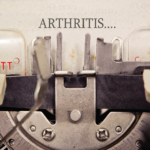(Reuters Health)—Arthritis that accompanies the skin condition psoriasis may also come with a higher risk of heart problems, according to a Hong Kong study.
In particular, patients with psoriatic arthritis may have a three- to four-fold higher prevalence of coronary atherosclerosis.
Clinicians need to identify patients with high cardiovascular (CV) risk so they can provide lifestyle advice and preventive treatment to those individuals, said study author Lai-Shan Tam of the Chinese University of Hong Kong.
Psoriasis and psoriatic arthritis are related, but not everyone with psoriasis will develop the more severe psoriatic arthritis associated with joint swelling and pain.
According to the National Psoriasis Foundation, about 30 percent of those with psoriasis develop the inflammatory arthritis, which that can cause permanent damage to joints.
Compared to the general population, people with psoriatic arthritis had a 68 percent higher risk of heart attack and a 43 percent higher risk of death in previous studies, the authors of the new study point out in the Annals of the Rheumatic Diseases, online January 4. Although the increased risk and association are known, studies can’t yet explain why.
Tam and colleagues evaluated coronary atherosclerosis using coronary CT angiography in 90 patients with psoriatic arthritis and 205 patients who didn’t have this condition but who did have cardiovascular risk factors.
The psoriatic arthritis patients, who didn’t have a prior heart disease diagnosis, had significantly higher amounts of plaques of all kinds, including non-calcified and mixed plaques that are considered more likely to rupture and cause heart attacks.
Sixty percent of psoriatic arthritis patients had at least one coronary plaque, as compared with 35 percent of the other patients. In addition, the researchers found three-vessel disease in 13 percent of psoriatic arthritis patients, compared to 3 percent of controls, and they found that blood vessels had narrowed by more than 50 percent in 9 percent of patients with psoriatic arthritis, versus 3 percent of controls.
Men over age 55 with longer histories of psoriatic arthritis were more likely to have the plaques most commonly associated with heart problems.
If doctors know to look for signs of heart disease sooner, they may be able to prescribe statins, anti-hypertension drugs and anti-inflammatory drugs before needing more aggressive treatment such as percutaneous coronary intervention or an angioplasty to improve blood flow to the heart, Tam told Reuters Health by email.
This could also be true for patients with other chronic inflammatory diseases such as rheumatoid arthritis, Tam and colleagues reported in another study. The researchers would also like to study atherosclerosis in patients with the milder psoriasis.

